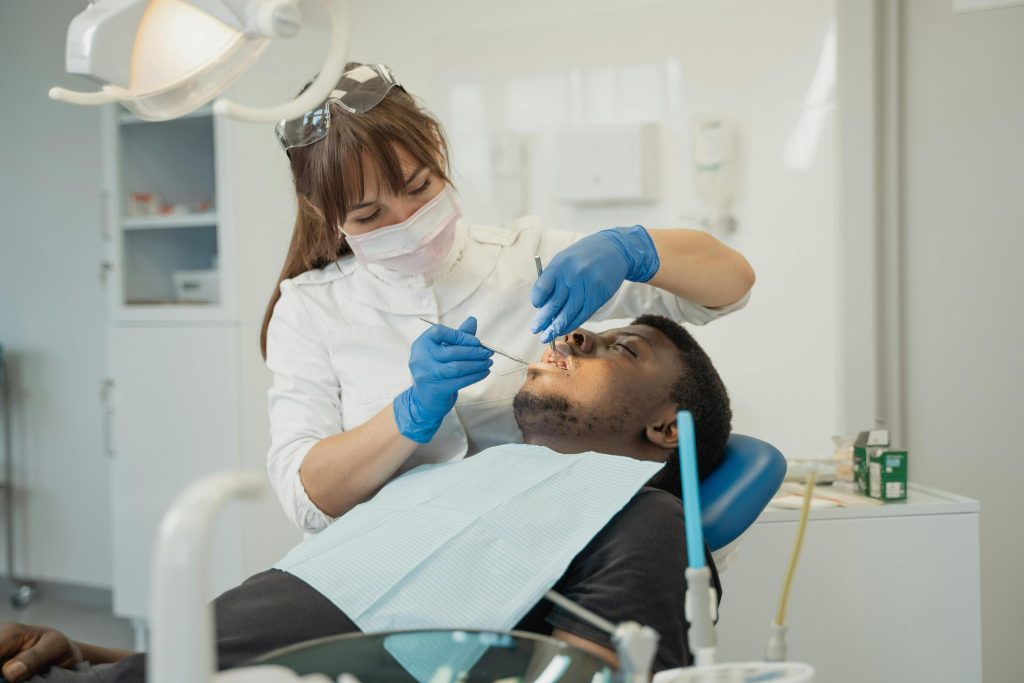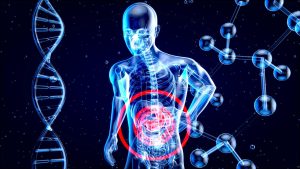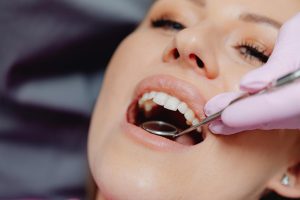When most people think about orthodontics, gut health isn’t the first thing that comes to mind. But there’s growing interest in how these two areas of health might be more connected than they seem. The relationship between orthodontics and gut health is gaining attention from both dental professionals and researchers who study the digestive system.
This connection comes down to how the mouth and gut work together. If your bite is misaligned or your teeth are crowded, it can affect how well you chew food. And poor chewing can put more strain on your digestive system. Oral bacteria also play a role, since some of them can travel to the gut and potentially disrupt the balance there.
So if you’ve had digestive issues and haven’t considered your oral health as a factor, it might be worth taking a closer look. Let’s start by understanding what gut health really means and why it’s such a big deal.
What Is Gut Health and Why It Matters
Gut health refers to the function and balance of bacteria throughout the gastrointestinal tract. When everything is working well, your body digests food efficiently, absorbs nutrients, and removes waste without trouble. But when the balance is off, it can lead to a variety of symptoms and long-term issues.
Here’s why gut health is important:
-
It helps regulate your immune system
-
It influences energy levels and mood
-
It plays a role in preventing chronic diseases
-
It affects how your body processes food and nutrients
Common Gut Health Issues
Some of the most reported gut problems include:
-
Bloating and gas
-
Constipation or diarrhea
-
Food intolerances
-
Inflammation
Many of these problems don’t seem linked to oral health at first. But as we’re about to explore, they may have more in common than you’d think.
Orthodontic Treatment: More Than Just Straight Teeth
Orthodontics isn’t just about appearance. It’s also about improving how your teeth and jaws function together. A properly aligned bite makes it easier to chew, speak, and clean your teeth. When alignment is off, it can lead to long-term issues—not only in the mouth but potentially in other parts of the body too.
People often seek orthodontic care to fix problems like:
-
Crooked or crowded teeth
-
Overbites, underbites, or crossbites
-
Jaw pain or discomfort when chewing
-
Speech problems linked to alignment
These issues don’t just affect confidence. They can make it difficult to chew food properly, which is the first step in the digestive process.
How Misalignment Can Affect Digestion
When your bite is uneven, you may chew less efficiently. That means larger pieces of food reach the stomach. Your digestive system has to work harder to break them down. Over time, this added stress may lead to issues like bloating or indigestion.
Here’s how orthodontic treatment helps:
-
It improves bite alignment so food is broken down more effectively
-
It reduces strain on the jaw and muscles during chewing
-
It makes brushing and flossing easier, which helps control bacteria that could reach the gut
By correcting these issues, orthodontic treatment doesn’t just improve your smile. It also helps support healthy digestion—something that ties directly into the conversation about orthodontics and gut health.
How Orthodontics and Gut Health May Be Linked
The connection between orthodontics and gut health is still being explored, but early findings suggest there are real reasons to pay attention. Several key factors could explain how oral alignment and gut function affect each other.
1. Chewing Efficiency Impacts Digestion
When teeth are misaligned, chewing becomes less effective. Food may not be broken down enough before it reaches the stomach. This forces the digestive system to work harder and can lead to:
-
Slower digestion
-
Bloating or discomfort
-
Poor nutrient absorption
Improving bite alignment through orthodontics can help make chewing more effective, which benefits the entire digestive process.
2. Oral Bacteria and the Gut Microbiome
The mouth is the first part of the digestive tract. Bacteria from the oral cavity can make their way into the gut. If harmful bacteria from poor oral hygiene or gum disease reach the stomach, they may:
-
Disrupt the balance of gut bacteria
-
Increase inflammation in the digestive system
-
Weaken the gut’s ability to protect against illness
Orthodontics often makes it easier to maintain good oral hygiene, which lowers the chances of harmful bacteria spreading.
3. Inflammation Can Travel Through the Body
Ongoing inflammation in the mouth—such as from gum disease or poorly fitting orthodontic appliances—can contribute to inflammation in other parts of the body, including the gut. Systemic inflammation has been linked to:
-
IBS and other gastrointestinal disorders
-
Fatigue and brain fog
-
Higher risk of chronic disease
Managing oral inflammation through proper orthodontic care may help reduce the overall burden on your body, including your digestive system.
By looking at these links, it becomes clearer why orthodontics and gut health are being discussed together more often. It’s not just a trend—it’s part of a larger understanding of how one part of the body can influence another.
Common Oral Health Issues That Could Impact Gut Health
Certain dental problems make it harder to maintain a healthy mouth, and that can affect your gut over time. Poor oral health often leads to bacterial imbalance and inflammation—two factors that are also tied to digestive issues.
Here are some common oral issues that may play a role:
Crowded or Misaligned Teeth
When teeth overlap or are misaligned, it becomes harder to clean between them. Food particles and plaque can build up in these areas, leading to:
-
Increased oral bacteria
-
Higher risk of gum disease
-
More harmful bacteria entering the digestive system
Orthodontic treatment can reduce this buildup by improving spacing and alignment, making brushing and flossing more effective.
Gum Disease and Systemic Inflammation
Gum disease (also called periodontal disease) is a chronic infection that affects the gums and bone supporting the teeth. If left untreated, it may:
-
Allow bacteria to enter the bloodstream
-
Trigger inflammation that affects other systems
-
Contribute to gut issues, especially in people already prone to digestive problems
Treating and preventing gum disease helps protect both oral and gut health.
Mouth Breathing and Bacterial Imbalance
Breathing through the mouth, especially during sleep, can dry out the oral tissues. This reduces saliva production, which is important for controlling bacteria. The result may be:
-
Increased bad bacteria in the mouth
-
A higher chance of these bacteria reaching the gut
-
Ongoing imbalance in the microbiome
Orthodontics can help correct jaw or bite issues that cause chronic mouth breathing, improving both oral function and health.
📌 Quick Self-Check: Could Oral Health Be Affecting Your Gut?
-
Do you have trouble flossing between certain teeth?
-
Are your gums frequently sore or bleeding?
-
Have you been diagnosed with gum disease?
-
Do you often feel bloated or experience stomach discomfort after meals?
If you answered yes to more than one of these, it might be worth discussing both your dental and digestive health with professionals.
Supporting Research on Orthodontics and Gut Health
While the connection between orthodontics and gut health is still being studied, researchers are finding more evidence that links oral conditions to digestive health. These studies are helping health professionals understand how issues in the mouth can influence the rest of the body—especially the gut.
What the Studies Are Showing
Some recent findings highlight the role oral bacteria play in overall health. Here are a few key insights:
-
Oral bacteria can travel to the gut. Studies have found that harmful bacteria from the mouth can survive the journey to the stomach and contribute to gut dysbiosis (an imbalance of gut bacteria).
-
Inflammation in the mouth may worsen digestive issues. Chronic gum disease has been linked to increased systemic inflammation, which may affect the gastrointestinal tract.
-
Chewing function influences digestion. Research shows that poor chewing caused by misaligned teeth or bite issues can reduce the efficiency of digestion and lead to symptoms like bloating or gas.
Expert Insights
Dentists, orthodontists, and nutrition experts are beginning to take a more holistic view. Many now believe that improving bite function and reducing oral bacteria through orthodontic care may benefit gut health.
Some professionals recommend:
-
Orthodontic assessments for patients with long-term digestive issues
-
Improved oral hygiene routines as part of gut health strategies
-
Coordinated care between dental and gastrointestinal specialists
While more research is needed to fully understand all the ways these systems are connected, the link between orthodontics and gut health is becoming harder to ignore.
What You Can Do: Protecting Both Your Oral and Gut Health
You don’t need a full medical team to start improving your oral and digestive health. Small, consistent changes can make a big difference. Since the connection between orthodontics and gut health is becoming clearer, it’s worth taking steps that support both.
Improve Daily Oral Hygiene
Keeping your mouth clean reduces harmful bacteria that could travel to the gut.
-
Brush twice a day for two full minutes
-
Floss daily to remove buildup between teeth
-
Use an antimicrobial mouthwash as recommended by your dentist
-
Replace your toothbrush every 3–4 months
Consider Orthodontic Treatment if You Have Bite Issues
If you have misaligned teeth or difficulty chewing, orthodontic care may help by:
-
Improving chewing efficiency
-
Making it easier to keep your teeth clean
-
Reducing oral inflammation
A consultation can determine if treatment like braces or clear aligners would be beneficial.
Support a Healthy Gut Through Diet
Gut-friendly foods and habits can strengthen digestion and balance your microbiome.
-
Eat high-fiber foods like vegetables, fruits, and legumes
-
Include fermented options like yogurt, kimchi, or kefir
-
Stay hydrated to aid digestion
-
Limit sugar and processed foods that feed harmful bacteria
📋 Quick Tips for a Healthier Mouth and Gut:
-
Chew your food slowly and thoroughly
-
Avoid snacking frequently throughout the day
-
Schedule regular dental checkups and cleanings
-
Add probiotics and prebiotics to your diet
-
Address any signs of gum inflammation early
Protecting your smile may also mean supporting your stomach—and small daily actions can go a long way for both.
When to Talk to a Specialist
If you’re dealing with digestive discomfort and also have ongoing oral issues, it may be time to connect the dots. Many people don’t realize that symptoms like bloating, irregular digestion, or fatigue could be linked to their dental health. Paying attention to both areas can give you a more complete picture of your overall well-being.
Signs You Might Need Help from Both a Dentist and a GI Specialist
-
You have trouble chewing or your bite feels off
-
You’ve been diagnosed with gum disease or have recurring inflammation
-
You experience frequent stomach issues without a clear cause
-
Your teeth are crowded, making it hard to brush and floss effectively
These situations can make it harder for your body to function efficiently. That includes how food is broken down and how nutrients are absorbed.
How a Coordinated Approach Can Help
A dentist or orthodontist can address the physical and bacterial challenges in your mouth, while a gastroenterologist can focus on digestive function. When needed, your providers may even communicate to support your care more effectively.
It’s a proactive way to protect both your mouth and your gut. Since there’s growing awareness of the link between orthodontics and gut health, more professionals are working together to provide complete care.
Conclusion: It’s All Connected
Your oral health doesn’t exist in isolation. What happens in your mouth can have a real impact on your digestive system. As more evidence points to a connection between orthodontics and gut health, it’s worth thinking beyond brushing and flossing.
From chewing efficiency to bacterial balance, your bite and alignment may influence how your gut feels and functions. If you’re dealing with long-term digestive issues, addressing problems like misaligned teeth or gum inflammation could be a smart part of the solution.
Taking care of your teeth might be one of the simplest ways to support your overall health—and your gut could thank you for it.
Start Supporting Your Smile and Gut Health Today
Improving your oral health could make a real difference in how you feel every day. If you’re exploring how orthodontic care can support both your smile and your overall wellness, Smiles Orthodontics is here to help. Our team offers expert solutions backed by years of experience.
Looking for a trusted orthodontist in Puyallup? Interested in Invisalign in Puyallup or need a consultation about braces in Puyallup? Smiles Orthodontics makes it simple to find the right treatment for your goals.
Schedule your free consultation with Smiles Orthodontics and experience expert care, flexible payment options, and a team committed to your best results.



